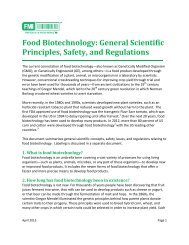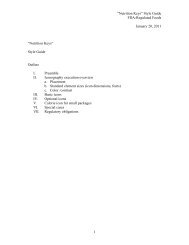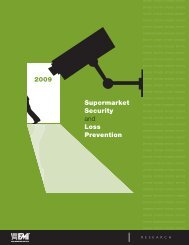GREATER ACCOUNTABILITY
GREATER ACCOUNTABILITY
GREATER ACCOUNTABILITY
You also want an ePaper? Increase the reach of your titles
YUMPU automatically turns print PDFs into web optimized ePapers that Google loves.
PREMISE: <strong>ACCOUNTABILITY</strong>--A FLAWED DEFINITIONTHE TRADITIONAL VIEWMost people view accountability as something that belittlesthem, happens only when performance wanes, or occurswhen problems develop or results fail to materialize. In fact,many think accountability only arises when something goeswrong or when someone else wants to isolate the cause ofthe problem--all for the sake of pinning blame and pointingthe finger.When the organizational ship is sailing along smoothlyand failure has not yet sunk the ship, people rarely ask,“Who is accountable for this success?” Only when the hullsprings a leak does anyone start looking around for theresponsible party. As a result, the notion of accountabilityfor many employees has taken on a hard, critical edge thatis often negative. The better question to ask is, “Who isaccountable?” before it’s too late. This needs to occur priorto deadlines, and in advance of the problems. By establishingaccountability up front, people are enlisted and empoweredto do all they can to ensure the desired result.Most dictionaries present a definition of accountability thatpromotes a seemingly negative view. Consider Webster’sdefinition:“Subject to having to report, explain orjustify; being answerable, responsible.” 2Notice how the definition begins with the words “subjectto,” implying little choice in the matter. This confessionorientedand powerless definition suggests what we all haveobserved--accountability is viewed as a consequence forpoor performance; it’s a principle you should fear because itwill only end up hurting you. Little wonder people spend somuch time avoiding accountability and trying to explain andThe Oz Principle ®AccountabilityQuestion“Who isaccountablefor achievingthe result?”the RESULTDiagram 3 - Accountability DefinitionThe TypicalAccountabilityQuestion“Who isaccountable forfailing to achievethe result?”justify poor results. A more positive and powerful definitionof accountability can do more to achieve outstanding resultsthan all the finger pointing and blaming that typicallyoccurs.In Diagram 3, the question on the right is really asking, “Whois to blame for this?” It is activity focused rather than resultfocused. When considering these two approaches, whichof these two approaches will have the greater impact onfostering and improving an organization’s ability to achieveresults--the ‘before-the-fact’ approach or the ‘after-thefact’way of establishing blame?THE ALTERNATIVE VIEWConsider the following alternative definition ofaccountability:“A personal choice to rise above one’scircumstances and demonstrate the ownershipnecessary for achieving desired results.”This definition suggests a mindset or attitude of continuallyasking, “What else can I do to rise above my circumstancesand achieve the desired results?” It involves a process ofseeing, owning, solving, and doing, and requires a level ofownership that includes making, keeping, and answeringpersonal commitments. Such a perspective embracesboth current and future efforts rather than reactive andhistorical explanations. Armed with this new definitionof accountability, organizations can help leaders andemployees do everything possible to both overcome difficultcircumstances and achieve desired results.22Webster’s Dictionary©2009 Partners In Leadership. All Rights Reserved.www.partnersinleadership.com | www.ozprinciple.com | Phone: 1-800-504-6070
















